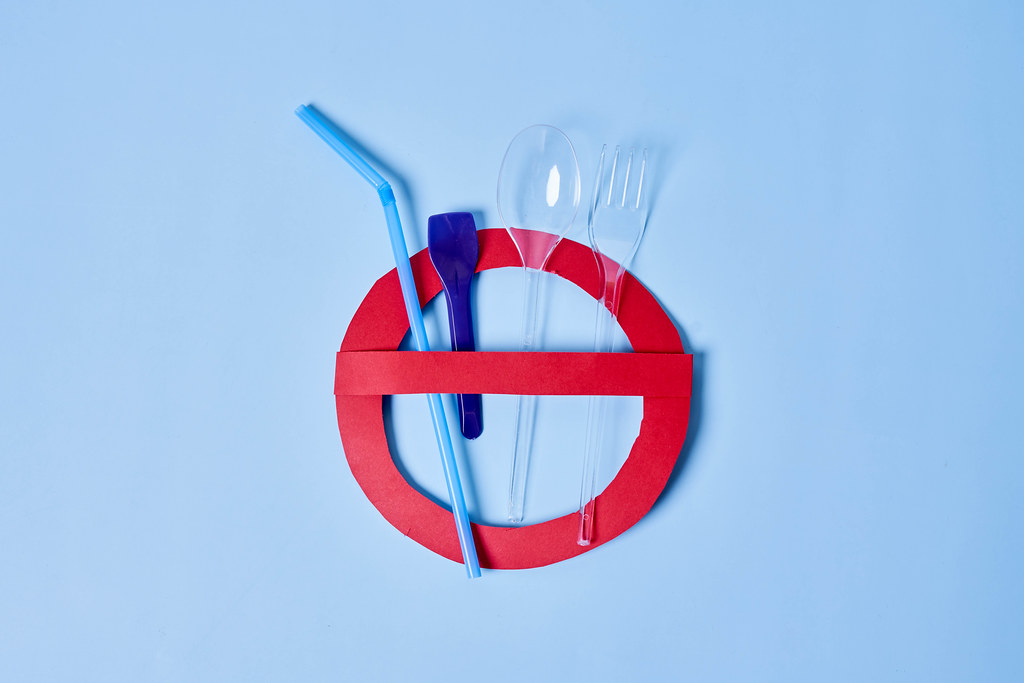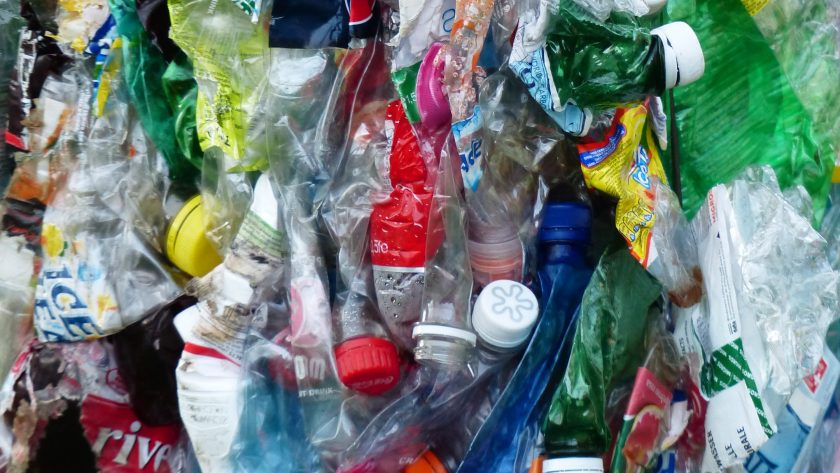In a world where convenience often takes precedence over sustainability, our planet is drowning in a sea of plastic waste. From disposable cutlery and single-use packaging to plastic bags littering every corner, the excessive use of single-use plastics has reached alarming levels. It’s time to embark on a new journey, a journey towards reducing the reliance on disposable plastics and finding innovative solutions that prioritize the health of our environment. In this article, we will explore the various ways to diminish the consumption of single-use plastics, paving the way for a more conscious and plastic-lite future. So, gear up, eco-warriors, as we dive into the realm of combating plastic pollution and discover how small changes can make a colossal impact.
Exploring Alternatives to Single-Use Plastic: Eco-friendly Choices for a Sustainable Future
Living in a world saturated with single-use plastic has become a pressing issue that demands our immediate attention. But fear not! There are numerous eco-friendly alternatives that can help us reduce our plastic consumption and pave the way towards a more sustainable future. By making simple yet impactful choices, we can collectively make a significant difference in the fight against plastic waste.
One great alternative to single-use plastic is switching to reusable containers and bottles. Investing in durable, BPA-free water bottles and food containers not only eliminates the need for disposable plastic products but also saves you money in the long run. Additionally, using reusable shopping bags made from organic materials, such as cotton or jute, can significantly reduce the amount of plastic waste generated during grocery trips. These reusable options come in various designs and sizes to suit your needs and personal style.
- Replace: Plastic straws with stainless steel, bamboo, or reusable silicone straws
- Choose: Glass or stainless-steel containers instead of plastic Tupperware
- Opt for: Eco-friendly alternatives like beeswax wraps or silicone food covers instead of plastic cling film
- Consider: Using a refillable water filter instead of purchasing bottled water
- Try: Using solid shampoo bars or refillable glass bottles for shower products
It’s important to realize that small changes in our daily routines can have a massive impact on our plastic consumption. Embracing these eco-friendly alternatives not only helps conserve our planet’s resources but also ensures a healthier environment for future generations. So, let’s take that first step towards a plastic-free future and inspire others to join us on this sustainable journey!

Raising Awareness: The Importance of Education in Reducing Single-Use Plastic Waste
In today’s world, the detrimental impact of single-use plastic waste on our environment cannot be ignored. As responsible individuals, it is essential for us to take action and raise awareness about the importance of reducing plastic waste. One effective way we can make a significant change is through education.
Education plays a crucial role in tackling the issue of single-use plastic waste. By spreading knowledge and promoting understanding, we empower individuals to make informed choices about their consumption habits. Through education, we can highlight the environmental consequences of plastic pollution, such as the harm it causes to marine life and ecosystems. Moreover, education can inspire people to adopt sustainable alternatives and encourage them to actively participate in recycling programs.
- Education fosters a sense of responsibility: By educating individuals about the harmful effects of single-use plastics, we can instill a sense of responsibility towards the environment in them. This will motivate individuals to take conscious actions to reduce their plastic consumption and actively seek alternative solutions.
- Education promotes innovation: Encouraging education about single-use plastics challenges individuals to think creatively and develop innovative solutions. By cultivating an environment of awareness and education, we can inspire inventors, scientists, and entrepreneurs to create sustainable alternatives to single-use plastic products.
- Education empowers communities: Education is a tool for empowering communities to take collective action against the use of single-use plastics. By organizing awareness campaigns, workshops, and educational programs within communities, we can create a ripple effect and harness the collective power of individuals to drive change.
Through education, we can foster a culture that values sustainability and environmental preservation. Let’s join hands in raising awareness about the importance of reducing single-use plastic waste and work towards a cleaner and greener future.

Simple Changes, Big Impact: Practical Steps Towards Reducing Single-Use Plastic Consumption
Plastic consumption has become a pressing environmental issue, but fear not, there are practical steps we can take to reduce our reliance on single-use plastics. By making simple changes in our daily lives, we can make a big impact on the health of our planet. Here are some practical tips to help you reduce your plastic waste and protect our environment:
- Bring Your Own Reusable Bags: Keep a stash of reusable shopping bags in your car or handbag to avoid using plastic bags at the grocery store. It’s a small change that goes a long way in reducing plastic waste.
- Use a Refillable Water Bottle: Ditch disposable plastic water bottles and opt for a stylish refillable bottle. Not only will you save money in the long run, but you’ll also prevent a staggering amount of plastic from ending up in landfills and oceans.
- Switch to Eco-Friendly Packaging: When shopping, look for products that come in eco-friendly packaging. Avoid items with excessive plastic wrapping and choose options that use recyclable materials instead.
By incorporating these simple changes into your routine, you can significantly reduce your single-use plastic consumption. Small actions, like using reusable containers for leftovers, saying no to plastic straws, and opting for loose produce instead of pre-packaged items, can create a ripple effect in the fight against plastic pollution. Together, let’s take responsibility for the impact we have on our planet and make a difference, one step at a time.

Long-term Solutions: Collaborative Efforts to Minimize Single-Use Plastic in Everyday Life
In today’s world, finding long-term solutions to minimize single-use plastic has become a pressing need. The collective effort required to address this issue demands collaborative action from individuals, businesses, and governments alike. By adopting sustainable practices and making conscious choices in our everyday lives, we can significantly reduce the amount of single-use plastic waste generated.
One effective way to tackle this problem is to embrace reusable alternatives. Investing in durable and eco-friendly products such as stainless steel water bottles, glass food containers, and reusable grocery bags can have a remarkable impact. By opting for these alternatives, we not only reduce the demand for single-use plastic but also contribute to decreasing the overall plastic waste in our landfills and oceans. Additionally, participating in initiatives like beach cleanups, river cleanings, and community education programs can raise awareness about the harmful effects of single-use plastic and inspire others to make changes.
- Switch to reusable shopping bags to reduce plastic waste.
- Carry a refillable water bottle and say no to disposable bottles.
- Choose products with minimal packaging or those packaged in recyclable materials.
Furthermore, it is crucial to hold businesses and governments accountable for their plastic consumption and waste management. Supporting businesses that prioritize sustainable practices and putting pressure on governments to implement stricter regulations can foster significant change. Encouraging the use of biodegradable materials and supporting initiatives that promote recycling and composting programs are key steps towards minimizing single-use plastic. Together, through collaboration and determination, we can create a cleaner, more sustainable future.
In a world where plastic has become an integral part of our daily lives, it’s crucial to take a step back and evaluate the impact of our choices. We have explored the necessity to reduce the use of single-use plastic in our article, « Comment Réduire l’Utilisation de Plastique à Usage Unique. »
From the depths of the oceans to the peaks of the highest mountains, plastic waste is infiltrating every corner of our planet. But hope lies in the hands of those who are willing to take action. By consciously making small changes in our routines, we can contribute to a brighter future for generations to come.
Through the course of this article, we have explored various innovative alternatives to single-use plastic. We have delved into the benefits of reusable bags, celebrated the rise of biodegradable alternatives, and emphasized the importance of education in driving change. It is a fascinating journey that reminds us of the power and resilience of human ingenuity.
As we bid farewell to the pages of this article, let us carry the knowledge we have gained and transform it into action. It is in our everyday choices that the true impact of our commitment can be felt. By refusing that plastic straw, bringing our own reusable water bottle, or choosing products packaged in eco-friendly materials, we are shaping a world that champions sustainability.
So, let us stand united amidst the sea of plastic waste, armed with awareness, determination, and the intention to do better. Let’s inspire others through our actions, sparking a ripple effect that will create waves of positive change.
Remember, it’s not about perfection, but progress. Every small step counts, and collectively, we can make a substantial difference. The time to reduce the use of single-use plastic is now, and the power to make this change lies within us all.
Let’s embark on this journey, armed with hope, inspiration, and a deep love for our planet. Together, we can forge a path towards a future where single-use plastic becomes a relic, and the earth can breathe a collective sigh of relief.




